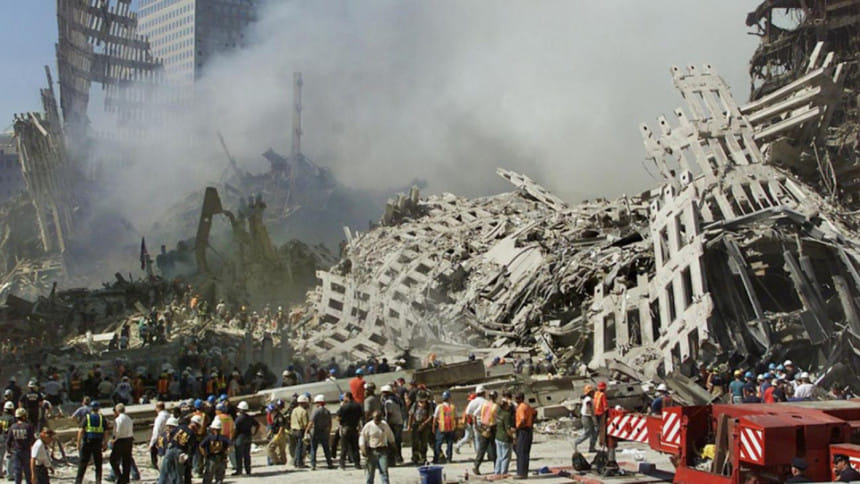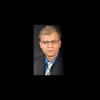9/11 and the collective memory of Muslims

Another 9/11 anniversary has just passed almost quietly. In the United States, the day was observed with usual rites and rituals. The president and other politicians made patriotic statements, reminding Americans of the sacrifices they made on that day. The message of resolve to defeat the enemies of the United States was also reiterated. Even though Donald Trump rallied his political base casting Muslims as people who hate America and calling to block them from entering the country, it seems he has softened his tone lately. He even stopped using the much-talked-about phrase "Islamic terrorism" in his latest public statements. That's certainly refreshing but it is not enough to redress the ordeal Muslims throughout the world experienced post-9/11.
Many Muslims died on that fateful morning, 16 years ago, on September 11, 2001. Their blood and flesh got mixed with the rubble of Twin Towers along with the bodies of thousand others. But Muslims woke up on the morning of September 12 with the blame for the terrorist attacks fallen squarely on their shoulders. They were blamed because 19 young men who flew planes to the Twin Towers in New York City and The Pentagon were Muslims. They were blamed because the perpetrators and the masterminds of the attacks justified their actions using scriptures from the Islamic faith.
It was almost obvious that the most powerful nation would retaliate. And they did. America invaded Muslim-majority countries and waged a long-drawn-out war—campaign against terrorism, as they called it—that left long-lasting consequences for more than a billion Muslims in the world.
Afghanistan and Iraq were invaded. Lives were lost, economies collapsed. Those countries are still reeling from the invasions. America gave shifting rationale for invading those countries. Finding weapons of mass destruction was proven to be false; exporting democracy was not authentic. Certainly, America wanted to fight terrorism globally. New terrorist outfits emerged as the United States left, or spoke of leaving, Iraq and Afghanistan before those countries were stabilised. America withdrew from the battlefields of Muslim-majority countries but the relentless war never ended. Drones became the new deadly weapons of engagement. Yes, bad guys were killed but different estimates and leaked memos show innocent civilians constituted the overwhelming majority of the victims. Terrorists and insurgents retaliated. And again—the victims were mostly Muslims.
Muslims lost much more than just lives post-9/11. Civil rights of Muslims in the United States and other Western countries were severely curtailed. President Donald Trump even tried to impose a blanket ban on Muslims arriving in the country. Even though Muslims are a tiny fraction of the US population, multiple states introduced anti-Sharia law, with two states enacting law that Sharia would never be the law of those states. Obviously, those moves were designed to make political statements. It's true some fringe right wingers were behind those moves but a wide section of the population and politicians supported those moves. Various surveys show that a significant number of Americans would support if civil liberties of Muslims were to be curtailed.
In this climate of hostility, Muslims realised that legal protection alone could not protect them from discrimination and harassment. They have become second-class citizens in the countries they were born or migrated into. Volumes of academic research tracked the sense of identity and citizenship of Muslim Americans post-9/11. My own research revealed widespread disillusionment among Bangladeshi-Americans about their citizenship and their future in the United States. The post-9/11 atmosphere was so hostile that Bangladeshi-Americans talked about the America they knew before 9/11 and the America that came to be after 9/11. They were genuinely worried about the future of their children in the United States. As time passed, the situation did not improve for them. Muslims felt that their lives were seen through the prism of terrorism. They became the suspect population. Their religious symbols were maligned. Their ethnicities criminalised. Islam turned into a political football. They witnessed their faith being brought into the spotlight after every terrorist attack anywhere in the world. Islam has widely been perceived as a faith that is not only regressive but it also promotes terrorism and extremism. Many even doubted in public whether Islam is a legitimate faith.
The very presence of Muslims or any reference of Islam almost always would invoke negativity and fear. Many working-class Muslims found that streets were not safe for them. Verbal harassment and even physical assault became frequent but in many cases they remained unreported. Ironically, even though they faced discrimination and intimidation, they were being portrayed as the grand inquisitors who would impose draconian Sharia law and take away people's freedom.
Many Muslims themselves also began to develop doubt about their faith. Their young and impressionable children were repeatedly exposed to constant barrage of negative media coverage of Islam. The young Muslim children were at higher risk on another front: the ISIS propaganda. Many Muslims in Europe are finding it difficult to integrate into mainstream societies. Their children suffered discrimination and alienation, making them vulnerable to extreme ideologies.
What about the pernicious ideology that lurk on the Internet waiting to seduce young Muslims? Ideology that motivated those 19 young men to smash the hijacked planes into the buildings and take many innocent lives. After 16 years of fight, that ideology is still alive and well. The ideology of exclusion and extremism that emanated from Wahhabism and Salafism spread all over the Muslim societies. Muslims all over the world talk about this ideology more openly. Fingers are also pointed to those who help sustain the ideology. That's a healthy sign. But more work need to be done to combat it and replace it with a more egalitarian and more hopeful face of Islam.
That said, I am not trying to generalise the experience of all the Muslims, but nonetheless Muslims had gone through some common challenges post-9/11. And they were not pleasant. Muslims will have to bear that collective memory.
Dr Shafiq Rahman is a Professor and Chair of Communication and Social Sciences Department at Chadron State College, Nebraska, USA.





Comments